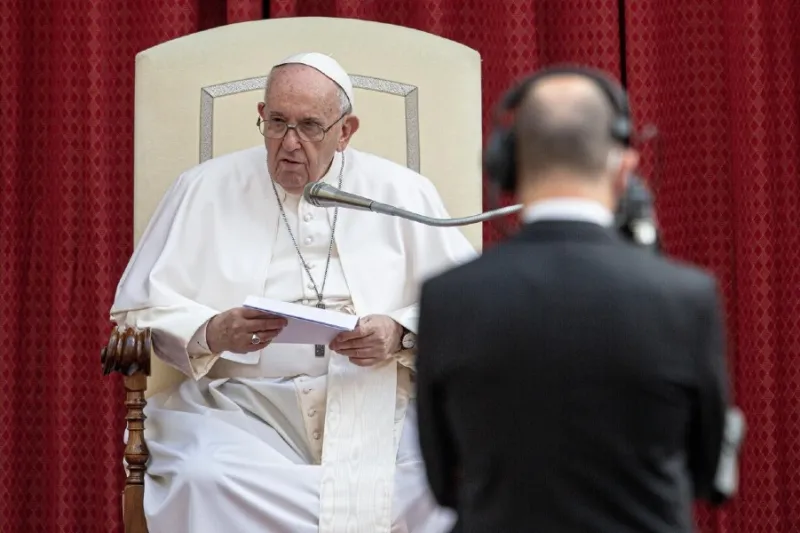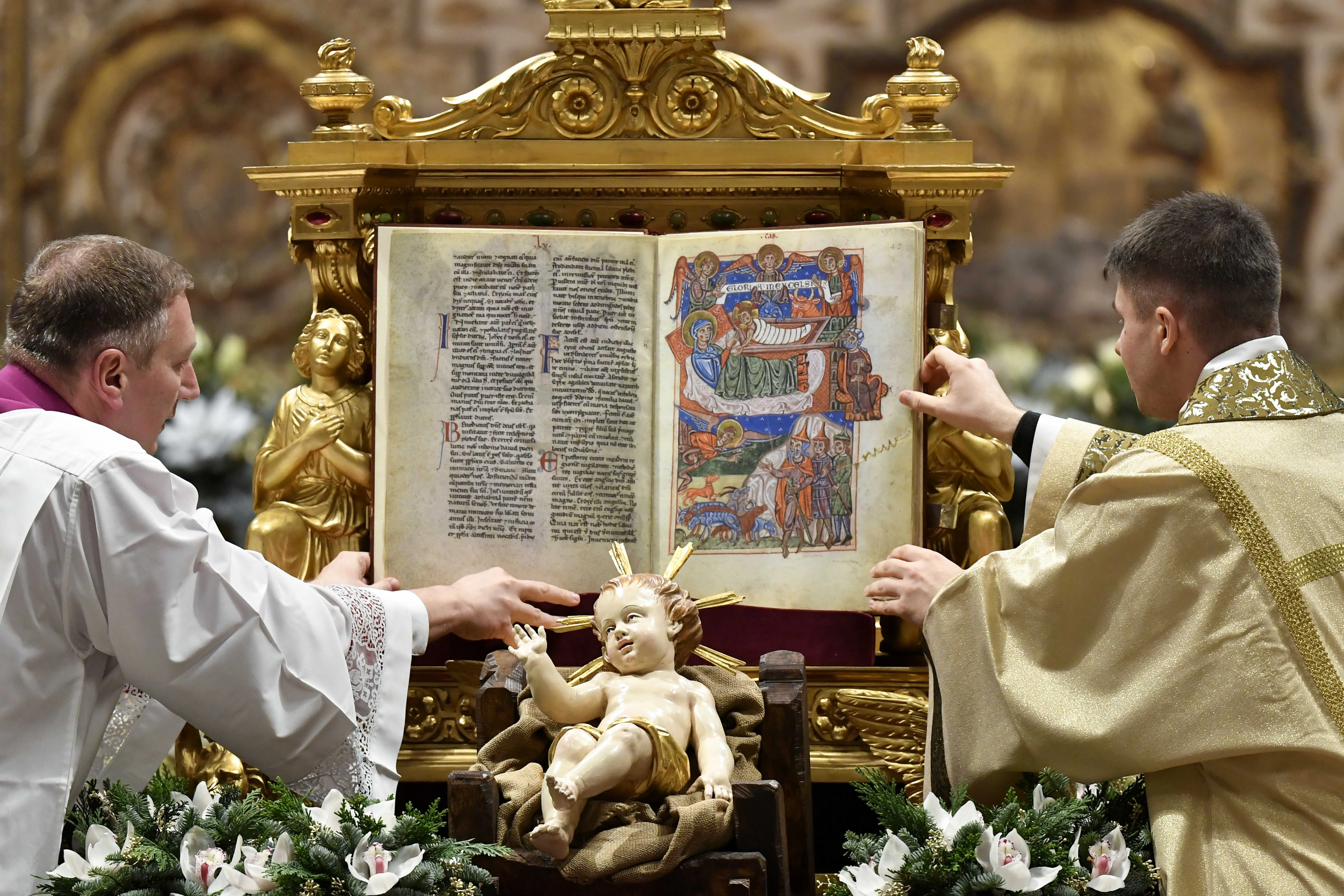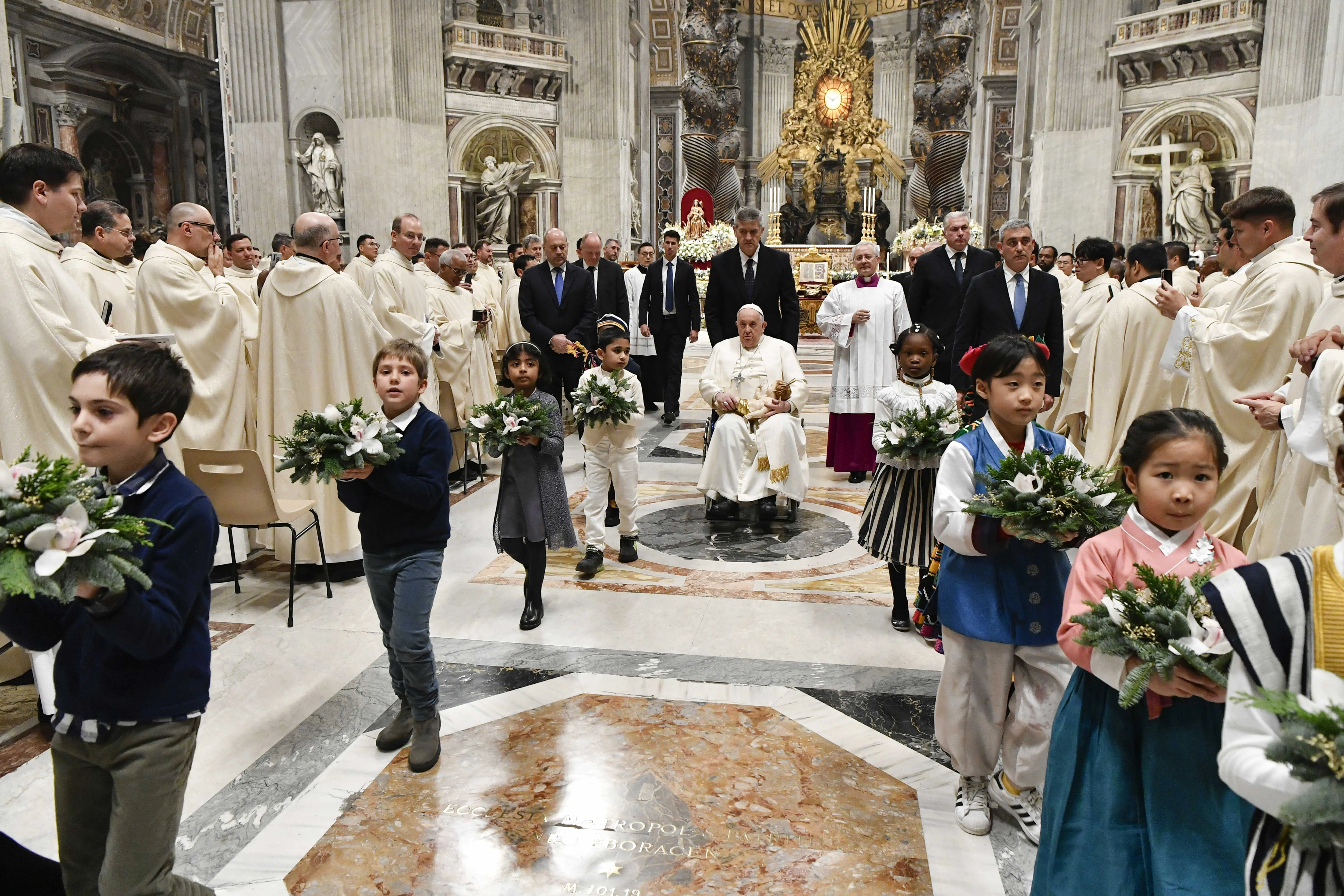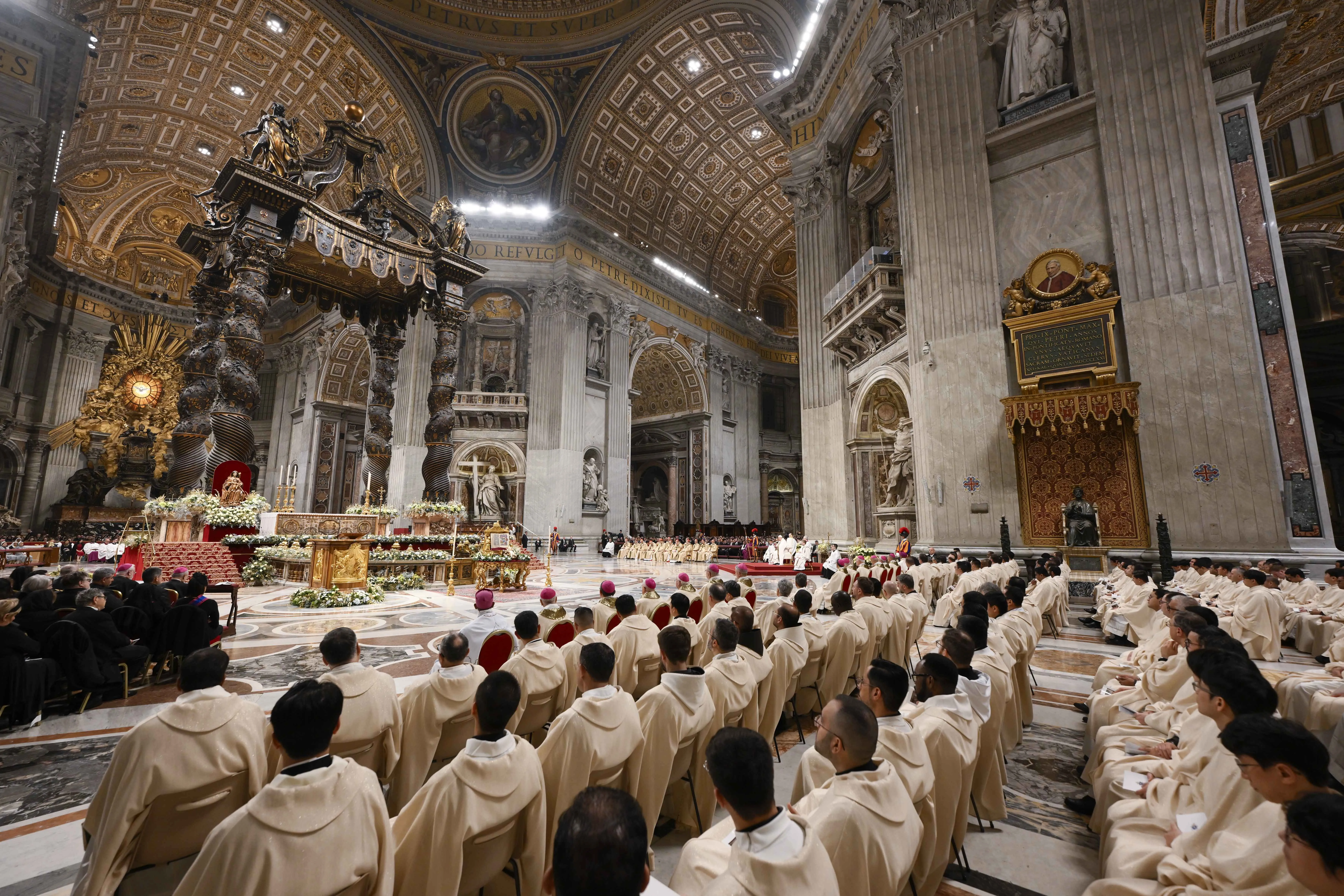
Orlando, Fla., Jul 4, 2017 / 08:59 pm (CNA/EWTN News).- Encountering Christ brings with it the responsibility of reaching out to those on the peripheries, Catholic leaders urged their fellow Catholics.
This service and need to bring with us the joy of the Gospel to all starts with those around us who are overlooked and reaches to the furthest ends of the globe.
“Jesus is already at the peripheries,” said Supreme Knight Carl Anderson at the Convocation of Catholic Leaders. “The question for us today is whether he will be there alone or whether his disciples will be there with him.”
The Convocation of Catholic Leaders was a meeting of more than 3,500 Catholic leaders, priests and bishops from around the United States in Orlando, Florida. The theme for the meeting was “The Joy of the Gospel in America.”
Anderson highlighted the work of the Knights of Columbus around the globe in geographical peripheries like North Korea, Latin America, Africa and the Middle East.
“As missionary disciples, we must make the Universal Church a presence at the peripheries as the process of globalization continues,” he urged attendees.
“However,” he continued, “the most difficult challenge may not be reaching out to the world. The most difficult challenge may be in reaching out to our own neighbors.”
In ministering to those on the peripheries in one’s immediate area – in one’s parish, in one’s neighborhood, in one’s family – Catholics are challenged to go outside of themselves and be a living witness of Christ.
“Those who are closest to us are the ones who discern most clearly the authenticity of our witness.”
This care for the peripheries closest to us extends to the American Church at large as well, Anderson said.
“There is no other Catholic country in the world that has as much diversity as America,” he said, detailing the wide range of demographic, geographic and cultural experiences present in the Catholic Church in the U.S.
“We have the opportunity to do something so fantastic for Catholicism in the world and no other country has the opportunity to do something so fantastic.”
A life of missionary discipleship in one’s family or nation does not diminish the responsibility of U.S. Catholics to care for those on the peripheries worldwide.
“There is no reason the U.S government should ignore the plight of Middle Eastern Christians,” Anderson urged, emphasizing again the work of the Knights of Columbus in protecting Christians of the Middle East.
Anderson’s speech was part of a larger session focused on the peripheries, a word used often by Pope Francis to refer to the outskirts of geographic and social boundaries.
His comments were followed by a panel discussion on how the Church works in the peripheries in the United States and across the world.
Dr. Ansel Augustine, a campus minister at St. John’s University and former head of the Office of Black Catholic Ministry in the Archdiocese of New York, highlighted the gifts that black Catholics have to offer the Church at large in America.
“Sometimes when we talk about black Church or black Catholicism, it’s met with some kind of shock or even at times disgust, because normally when we hear the notion of the word ‘black,’ it’s with the connotation of negativity,” he said.
This connotation, along with the long history of how persons of African descent have been treated in the U.S., make the black Catholic Church part of the peripheries, he noted.
The black Catholic community also has many gifts to give the American Catholic Church. He pointed to the example of the five African American men and women whose causes for canonization are open: Venerable Pierre Toussaint and Venerable Henriette Delille and Servants of God Fr. Augustus Tolton, Sister Thea Bowman, Mother Mary Elizabeth Lange, Julia Greeley.
“That’s important to us and that’s our story, our pain, our struggle,” he said.
“All we ask is that the Church that we love show us they love us back.”
Sr. Norma Pimentel, MJ, Executive Director of Catholic Charities in the Rio Grand Valley spoke about her experience ministering to immigrants coming over the southern border. She explained that many people coming over have experienced hurt and pain by other people who are Catholic as well.
When reaching out to those people, she said, “you have to trust that God is with you.”
She also stressed the importance of placing Christ and love for the other person at the center of outreach to people in vulnerable situations.
“If our work isn’t grounded in the love of Christ, it quickly becomes about us,” she said.
Lastly, Sr. Pimentel explained what can be learned from people living and ministering in the peripheries.
“The people in the valley, somos familia (we are family). We take care of one another,” she said. “Welcome the immigrants in your communities. They need you.”
Fr. Paul Check, Rector of St. John Fisher seminary and former Executive Director of Courage, a ministry for Catholics who experience same-sex attraction, spoke about chastity.
“Chastity is part of the Good News of Jesus Christ,” and a message that is needed in the world, he said.
“Our Lord would not ask us to do something that is impossible,” he explained, “but he also told us that we would be a sign of contradiction in the world. That contradiction is not to be provocative, and certainly not to be belligerent, but it is to invite people to the fullness of Joy, that living the life of Christ lived in this world will bring.”
Persons who have lived one way of life and then, through conversion, have started living another way are an essential part of the Church’s evangelization and ministry to those on the margins.
Fr. Check encouraged all to “be bold in your charity and chastity for the kingdom and God’s grace will help you.”
Carolyn Woo, former president and CEO of Catholic Charities explained how CRS goes about its work of ministry and service even in the most difficult of situations. In many countries where CRS serves, governments are hostile to Christians and Catholics.
Maintaining a Catholic identity in countries hostile to Catholics and Christians
“In some countries conversion is punishable by death,” Woo said, adding that in some cases, proselytizing actions could risk the lives of the people CRS serves as well as those of local lay faithful, priests and bishops.
Despite these challenges, “we have to go to serve and there can be no conditions.”
In countries all over the world, regardless of the state’s beliefs, CRS ministers. In some cases, this example of Christian life has resulted in changing perceptions among the public about what it means to be Christian, accompanied by a “sense of solidarity and trust for American Catholics,” she said.
In this, Woo continued, CRS sees its ministry as a form of evangelization.
“What does evangelization really mean? For us it means making real God’s love. The truth is God loves everyone all the time, and this love is very real.”
 […]
[…]











The same majority that denies the Real Presence?
Accuracy in measures is not always consistent with reality due to variables. In the instance of Pope Francis’ popularity among Catholics at 83%, you can bet the farm that the number of actual practicing Catholics among those claiming to be Catholic in America is 17% [portend of Benedict’s remnant Church]. “In the latest survey, 90% of Catholic Democrats expressed a favorable opinion of the pope, compared with 73% of Catholic Republicans and GOP leaners” (Claire Gecewicz for Pew). That Republicans favor the Pontiff’s views that high [73%] spells great difficulty for the Church to recover what it once was, even stretching back as recent as the seventies. If Gecewicz’s figures are reasonably accurate the large statistic in favor of Francis is consistent with a belief that attending Mass [the vacant or sparsely attended churches worldwide is a strong indicator] receiving the sacraments, following an Apostolic moral code is irrelevant to salvation [one can have far more fun and still be saved at crunch time]. Again, if the figures are more or less correct, what is the message, if not the popularity of Francis’ doctrine of mercy that surpasses divine justice contemporaneously, that is, in respect to how we live our lives? The tragedy of those beguiled to follow this view is the stark reality of final judgment, that belongs to God, not Francis.
Instead of “opinions,” has the overloaded public reverted back mostly to impressions? Lest we forget everything, governance by “pollsters” came into use in the mid-twentieth century precisely because the term sounded so much like hucksters.
You said it!
Define “Catholic” before I even consider this survey. In my mind, a Catholic is someone who through baptism believes ALL that the Church holds to believe. When I say “ALL” I mean all.
So what?
Polls utilizing specious, at best, methodologies are to the illiterate as smack is to a junkie.
I’m willing to bet that the more likely a Catholic is to practice their faith, attend Mass regularly and the more likely to actually believe what the Church teaches (and apply it to their everyday lives), the lower their opinion of Pope Bergoglio.
To me the mercy of Pope Francis takes after that of the Parable of the Dishonest Manager, who wrote off the debts(sins) of others(world) to ingratiate himself. This could explain the polls.